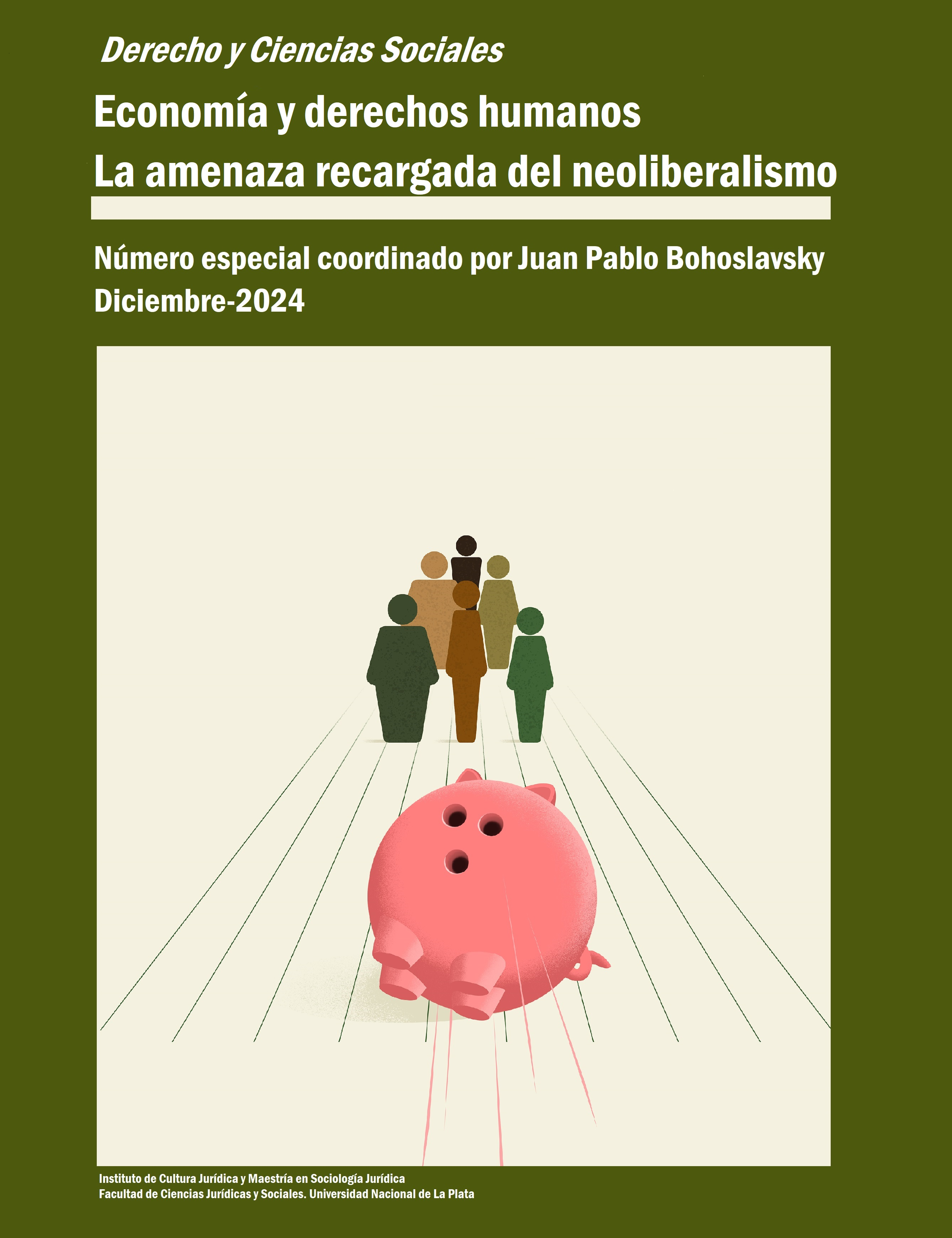La propiedad como derecho social
Palabras clave:
derechos económicos, sociales y culturales , derecho internacional de los derechos humanos, derecho a la propiedad, función social, vivienda adecuadaResumen
Este artículo analiza el valor añadido de un enfoque amplio de los derechos humanos con el fin de obtener un mayor equilibrio en la relación entre el derecho a la vivienda adecuada del arrendatario y el derecho a la propiedad del arrendador. En primer lugar, el artículo brevemente expone de qué forma los tratados de derechos humanos y los órganos internacionales sobre derechos económicos, sociales y culturales (DESC) han abordado, o decidido no abordar, el derecho a la propiedad. Segundo, introduce el derecho a la vivienda tal y como es proclamado en el derecho internacional de los derechos humanos. En tercer lugar, el artículo sostiene que la comunidad de derechos humanos, particularmente la dedicada a los DESC – entre los que se encuentra la vivienda – debería prestar más atención al derecho a la propiedad. Finalmente, el texto articula los comienzos de una propuesta para reinterpretar el derecho a la propiedad y su función social desde una óptica holística de los derechos humanos, óptica que debe tomar en serio el derecho a la vivienda y otros derechos socioeconómicos.
Referencias
Akkermans, B. (2021). Sustainable Ownership – new obligations towards achieving a sustainable society. European Property Law Journal, 10(2-3), 277-303. https://doi.org/10.1515/eplj-2021-0014
Alexander, G. S. (2018). Property and human flourishing. Oxford University Press.
Casla, K. (2020). Rights and responsibilities: Protecting and fulfilling economic and social rights in times of public health emergency. En Law and Human Rights: Essex Dialogues. A Project of the School of Law and Human Rights Centre (pp. 11-17). University of Essex.
Casla, K. (2022). Unpredictable and damaging? A human rights case for the proportionality assessment of evictions in the private rental sector. European Human Rights Law Review, 2022(3), 253-272.
Casla, K. (2023). The Right to Property Taking Economic, Social, and Cultural Rights Seriously. Human Rights Quarterly, 45(2), 171-204. https://dx.doi.org/10.1353/hrq.2023.0010
Casla, K. (2023). Función social de la propiedad, vivienda adecuada y derecho internacional de los derechos humanos. Lex Social, 13(2), 1-21.https://doi.org/10.46661/lexsocial.8138
Dagan, H. (2021). A liberal theory of property. Cambridge University Press.
Davidson, N. M. (2011). Sketches for a Hamilton Vernacular as a Social Function of Property. Fordham Law Review, 80(3), 1053-1070.
Duguit, L. (1920). Les transformations générales du droit privé depuis le Code Napoléon. Librairie Félix Alcan.
Duranti, M. (2017). The conservative human rights revolution: European identity, transnational politics, and the origins of the European convention. Oxford University Press.
Dyal Chand, R. (2022). Sharing the climate. Columbia Law Review, 122(3), 581-648.
Epstein, R. A. (2023). The plasticity of property: legal transitions between property rights regimes for different resources. En E. Nordtveit (Ed.), The Changing Role of Property Law (pp. 14-53). Edward Elgar Publishing.
Foster, S. y Bonilla, D. (2011). The social function of property: A comparative law perspective. Fordham Law Review, 80, 101-113.
Fox O’Mahony, L. y Roark, M. L. (2023). Property as an asset of resilience: Rethinking ownership, communities and exclusion through the register of resilience. International Journal for the Semiotics of Law-Revue internationale de Sémiotique juridique, 36(4), 1477-1507.https://doi.org/10.1007/s11196-023-10000-7
Gerhart, P. M. (2014). Property law and social morality. Cambridge University Press.
Global Initiative for Economic Social and Cultural Rights. (2023). 2022 Yearbook of The Committee on Economic, Social and Cultural Rights. GI-ESCR.
Milanovic, B. (2019). Capitalism, alone: The future of the system that rules the world. Harvard University Press.
Moore, R. (2023). Property: The Myth that Built the World. Faber & Faber.
O’Cinneide, C. (2020). The Potential and Pitfalls of Intersectionality in the Context of Social Rights Adjudication. En S. Atrey y P. Dunne (Eds.), Intersectionality and human rights law (pp. 59-82). Bloomsbury Publishing.
Oren, M. L. y Alterman, R. (2022). The right to adequate housing around the globe: Analysis and evaluation of national constitutions. En S. Agrawal (Ed.), Rights and the city: Problems, progress and practice. Forthcoming University of Alberta Press.
Tooze, A. (28 de octubre de 2022). Welcome to the world of the polycrisis. Financial Times. https://www.ft.com/content/498398e7-11b1-494b-9cd3-6d669dc3de33
Underkuffler, L. S. (2015). A theoretical approach: the lens of progressive property. En S. Bright y S. Blandy (Eds.), Researching Property Law (pp. 11-23). Hart Publishing.
Van der Walt, A. J. (2014). The modest systemic status of property rights. Journal of Law, Property and Society, (1), 15-106.
Walsh, R. (2021). Property rights and social justice: progressive property in action. Cambridge University Press.
Wilson, S. (2011). Litigating Housing Rights in Johannesburg’s Inner City: 2004—2008. South African Journal on Human Rights, 27(1), 127-151. https://doi.org/10.1080/19962126.2011.11865008
Descargas
Publicado
Número
Sección
Licencia
Derechos de autor 2024 Koldo Casla

Esta obra está bajo una licencia internacional Creative Commons Atribución-CompartirIgual 4.0.
Los autores/as conservan los derechos de autor y ceden a la revista el derecho de la primera publicación, con el trabajo registrado con la licencia de atribución, compartir igual, de Creative Commons, que permite a terceros utilizar lo publicado siempre que mencionen la autoría del trabajo y a la primera publicación en esta revista.

Derecho y Ciencias Sociales por Facultad de Ciencias Jurídicas y Sociales se distribuye bajo una Licencia Creative Commons Atribución-CompartirIgual 4.0 Internacional.
























